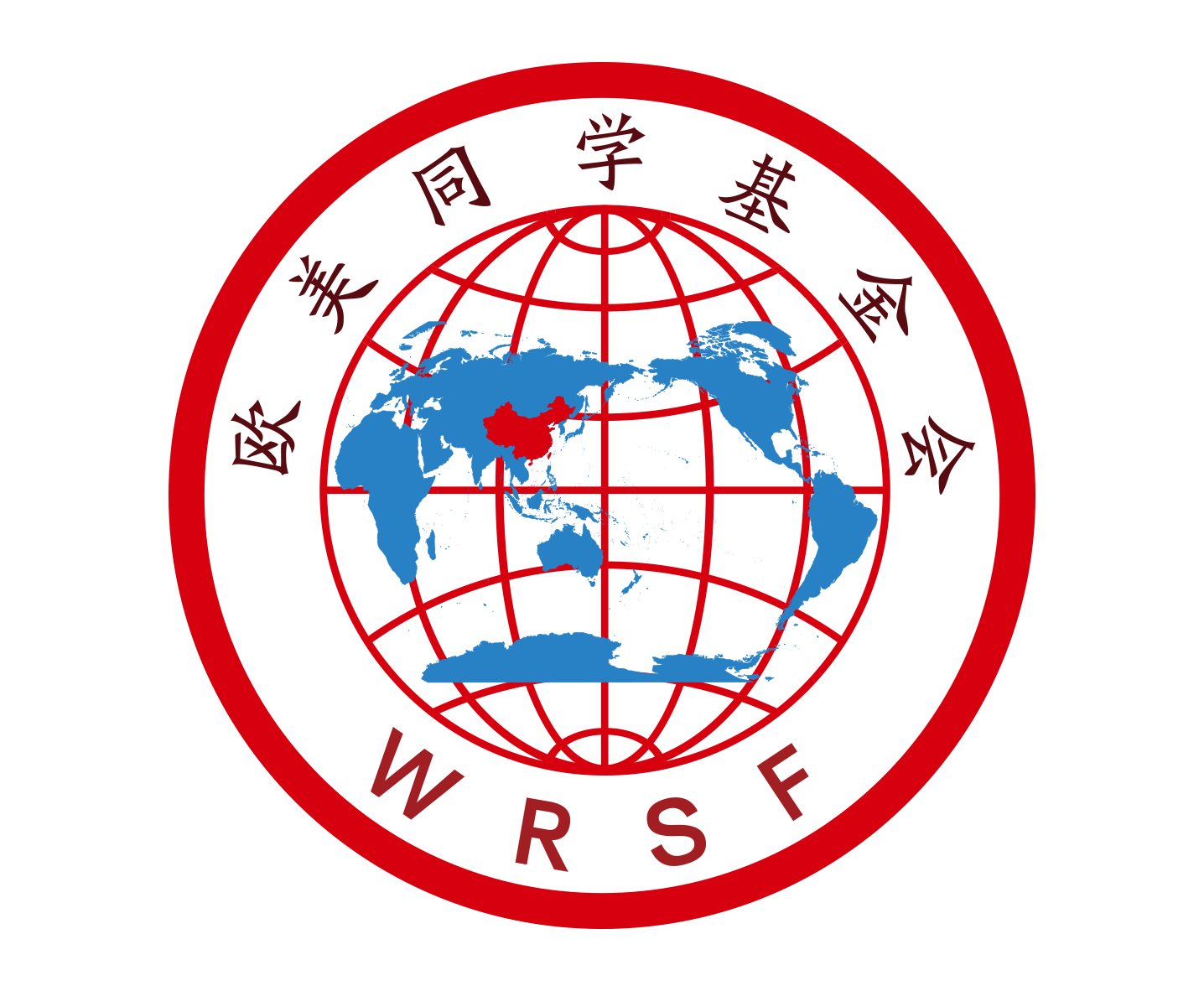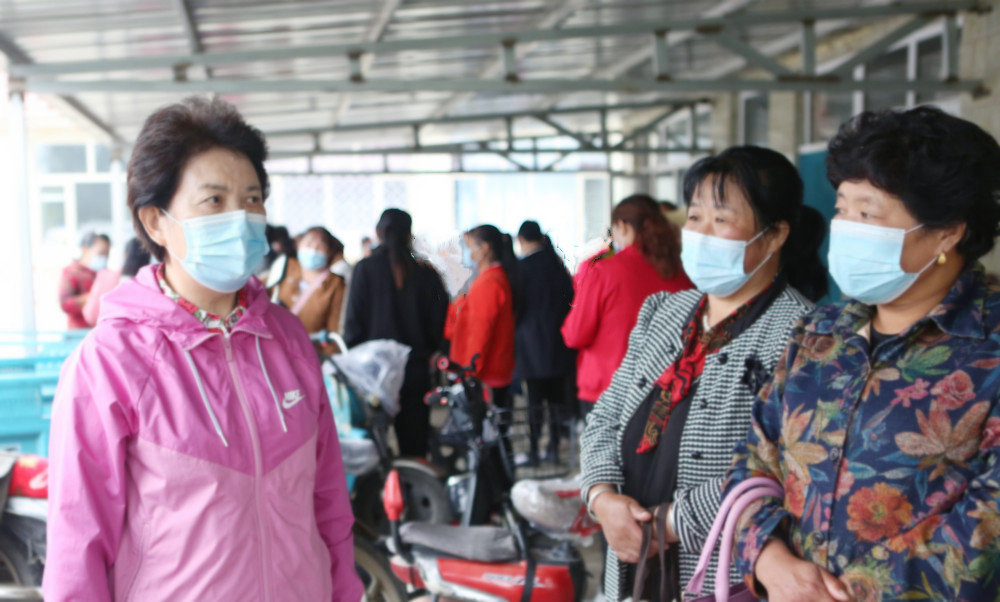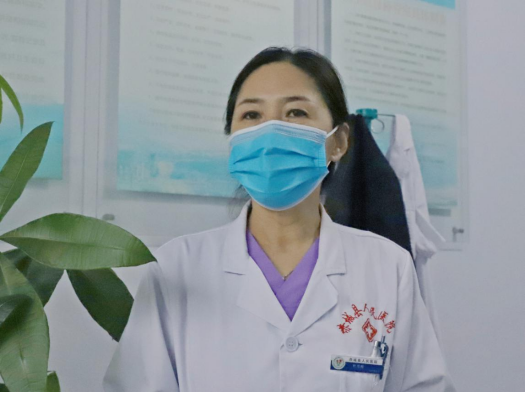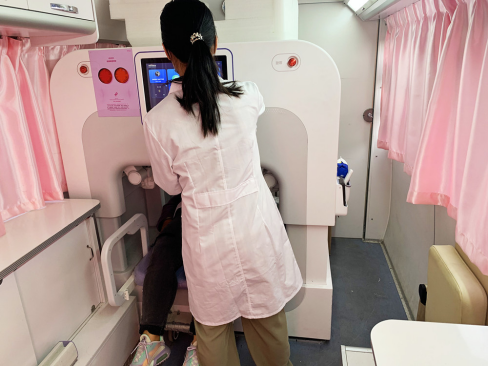WRSF's public screening for the prevention of cervical cancer and breast cancer reaches the rural areas
Since the beginning of September, in order to enable the grassroots rural women in Chicheng to better accept thisscreening project, the project working group, with the support of Chicheng County People's Hospital, drove a mobile screening vehicle with mobile screening equipment to go deep into the towns and villages for screening and testing, and has provided door-to-door cervical cancer and breast cancer public welfare screening services for nearly 3,000 rural women, truly let the screenings reach the last mile in the countryside and sincerely serving every woman of the right age.
"Preventing diseases and poverty, and promoting rural revitalization" public welfare screening project for womenin Chicheng County was launched by the Western Returned Scholars Foundation (WRSF) on July 26.Since its launch, two scanning stations have been set up in Chicheng County and three in the townships, which have been greatly welcomed and supported by local women of the relevant age group.So far, nearly 8,000 women of therelevant age group in Chicheng County have been screened, and it is expected that more than 10,000 women will participate in the public welfare screening project.
Since the beginning of September, in order to enable the grassroots rural women in Chicheng to better accept thisscreening project, the project working group, with the support of Chicheng County People's Hospital, drove a mobile screening vehicle with mobile screening equipment to go deep into the towns and villages for screening and testing, and has provided door-to-door cervical cancer and breast cancer public welfare screening services for nearly 3,000 rural women, truly let the screenings reach the last mile in the countryside and sincerely serving every woman of the right age.
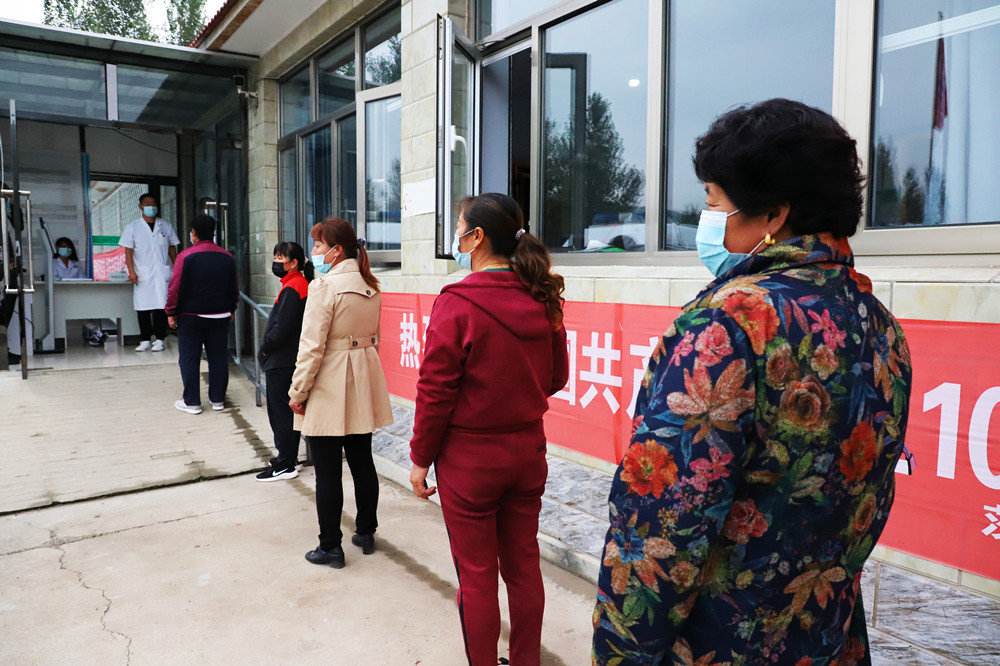 Women waiting in line to be screened for thepublic welfare screening project.
Women waiting in line to be screened for thepublic welfare screening project.
In the early morning of September 15, in the drizzling rain, Mo Wenxiu, Chairman of the Board of Directors of the WRSF, Li Jun, Assistant to the Chairman of the Board of Directors of the WRSF, and Liang Wenmei, Deputy Secretary General of the WRSF, came to Ciyingzi Township, 50 kilometres away from Chicheng County, to inspect the situation of women of the relevant age groupreceiving thepublic welfare screening in the township. Although it was not yet 9 o'clock, more than 140 women had already arrived from various villages in Ciyingzi Township, most of them came to the screening site through spontaneous promotion by village doctors and women who had already been screened, waiting to receive thepublic welfare screening. As the township is far from the county town, the traffic is not very convenient, so the public welfare screening mainly relies on the mobile screening vehicle.
Mo Wenxiu, Chairman of the Board of Directors of the WRSF, talking to women of the right age who are getting screened.
With concern for the implementation of the public welfare screening project, as well as for the personal feelings of grassroots women who have participated in the public welfare screening, Mo Wenxiu, Chairman of the Board of Directors of the WRSF, had a cordial exchange with them on the spot. "Where did you see the notice of screening? Where did you come from? Is it far from here? Is it easy to come here? How many people have come from your village ......" Mo Wenxiu asked everyone with concern. Some said they had been informed by the village doctor, others said they had been invited by their sisters in the village to come along, while others said they had learned from WeChat that a mobile screening van had come and check on them today, so they had come early in the morning.
While answering questions from Mo Wenxiu, everyone talked about their thoughts and feelings about the screening program. Although people used to think that screening for the two cancers was necessary, they always felt that these tests were often far away from them in the city, but this time they were very happy to receive free screening at their doorstep. "It's really good that you have taken the initiative to come for screening like this, because you will feel more reassuring after the test, and you will be able to detect and treat any health problems early. I hope you can encourage women around you who have not yet been screened to participate in our public welfare screening campaign as soon as possible." Mo Wenxiu said to everyone with concern.
Du Xiumei, Director of the Department of Obstetrics and Gynaecology of Chicheng County People's Hospital, introducesimplementation of the public welfare screening project.
Du Xiumei, Director of the Department of Obstetrics and Gynaecology of the People's Hospital of Chicheng County, often uses her time off to follow the mobile screening van to the villages to participate in thepublic welfare screening in addition to her busy work schedule. She remembers clearly a 60-year-old woman who participated in the public welfare screening campaign. After the woman's test results came out, Du immediately found out that she belonged to the five high-risk groups, and immediately notified her urgently, asking her to go to a large hospital for further examination as soon as possible. "She said she would go to a major hospital for further tests as soon as she received the notification, and I kept in touch with her. She told me that she was particularly grateful for the screening campaign, saying that the screening had helped her identify the problem in time and had really saved her life, all these words made us doctors feel that the hard work was well worth it." The patient's words made Du Xiumei feel even more aware of the significance of the project and the responsibility on her shoulders.
The screening programme is equipped with a mobile screening van that can take samples for screening anywhere, anytime, with the advantages of mobility, efficiency, convenience and accessibility. The van can reach remote areas in the countryside to improve the coverage and efficiency of screening as well as the early diagnosis and treatment rate of cervical cancer and breast cancer among rural women and reduce the mortality rate of breast cancer.
A staff member of the mobile screening van, who has been involved in thepublic welfare screening project for two months, said that the van can screen an average of 13-14 people an hour, with a maximum of 145 people screened in one day. She said, "When we go to the countryside for screening, we often hear from the women who participate in the screening that they would never go for a check-up if they don't feel unwell, because it is too much trouble to go for a check-up because of the distance, and they also think it is too expensive to go to the hospital. So this time the screening van came to the villages to screen people, they are very happy and welcome, they are willing to take the initiative to accept the examination to see if they have any health problems, so that the screening service radius can also be greatly improved, so that more people can benefit from it and improve the early diagnosis and treatment rate."
The "Preventing diseases and poverty, and promoting rural revitalization" public welfare screening project for women not only demonstrates the importance that the WRSF attaches to women's right to life and development, but also demonstrates the foundation's ability to help grass-roots women address their most pressing health concerns, and is an effective way to improve the health of grass-roots women. The online booking and enquiry system for thescreening programme has also enabled the formation of a recordable and traceable database for the screening of women of the right age in Chicheng County, providing a powerful tool for the local government in the area of women's health services.

